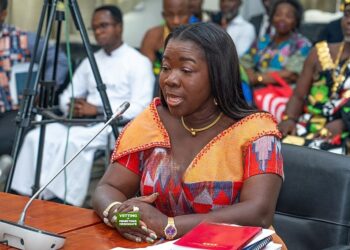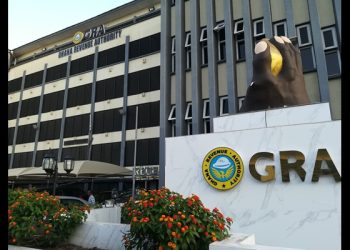The International Water Management Institute – Ghana (IWMI) has reiterated the need for Ghana to leverage opportunities presented by COVID-19 for rapid sustainable growth.
The Institute made the call at a national policy dialogue on social transformation, which seeks to outline policy and regulatory strategies to help reverse the negative effects of Covid-19.
The policy dialogue focused on social transformation through innovations and programmes that would ensure transformative rural growth and climate adaptation in the wake of the pandemic.
Dr George Essegbey, Chief Executive Director of Technology Development Centre of CSIR-STEPRI Accra, said social transformation and development required science, technology and innovation.
He said as the country thought through ways of reviving the economy post COVID-19, and it was imperative that it considered innovative ways of taking advantage of opportunities that came with the pandemic.
Mr Essegbey said: “Science, Technology and Innovation (STI) are important forces in bringing about social transformation. In this policy dialogue, it is important we draw out the STI perspective in analysing the COVID-19 situation and the disruptions and opportunities that it has created in climate adaptation and rural transformation.”
“For any transformation to be effective, the harnessing, adoption, application and diffusion of STI are fundamental,” he added.
Mr Patrick Robert Ankobiah, Chief Director at the Ministry of Food and Agriculture, said discussions on social transformation could not be conclusive without linkages to the transformation of agricultural systems.
He said as a country that was largely agrarian, discussions on improving agricultural systems in the context of rural transformation and climate adaptation in the wake of the pandemic was important.
Mr Ankobiah said disruptions in supply chains triggered the need for countries to invest in the agricultural value chain, food production, diversify sources of foreign exchange earnings to become resilient to future external shocks.
He said it was more compelling now than ever to exploit import substitution potential for value chains of foods such as rice, soya and poultry.
“The pandemic has triggered the need to develop local capacity for the manufacture of machinery and equipment for farming and processing, as well as promoted the need for the use of e-commerce for trading,” he said.
Mr Christopher Conduah, a Policy Analyst at the National Development Planning Commission, said emerging planning needed to be grassroots based through the Metropolitan, Municipal, and District Assemblies.
He said this required cross sectorial engagements among government agencies, improved communication and inclusivity of all stakeholders and infrastructure expansion.
Mr Conduah said it was important that the nation built and equipped institutions to be always prepared for emergencies, saying, with that, institutions could function effectively.
Dr Charity Osei-Amponsah, the Project Coordinator, said the policy dialogue was being implemented under the auspices of the social transformation and policy advocacy component of the European Union Ghana Agriculture programme.
She said it focused on understanding and tracking social transformation in persistent structural changes in economic and social relations that affected individuals, households and communities as well as provide insights into government’s policy formulation.
“The project seeks to kick start national policy discussions on effects of sudden disruptions on socio-economic development processes such as the current COVID-19 pandemic, and how we can mitigate their adverse impacts on sustainable development,” Dr. Osei-Amponsah said.










Discussion about this post